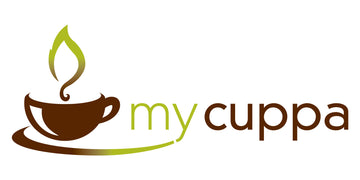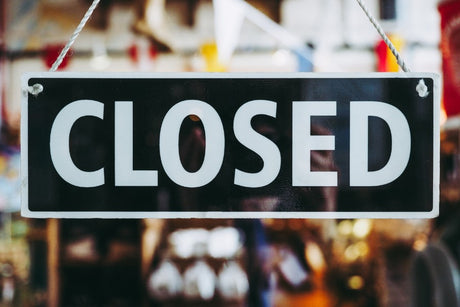The cruel underbelly of cafe culture.
Shopping Centers - those original disruptors of "Neighborhood Strip Shopping" and the long-forgotten "Corner Store", continue to face relentless pressure from many niche online specialists.
Today, most Shopping Centre hospitality tenants count the days until they are "released" from the slavery of high rents and unreasonable, onerous lease terms.
Some even resort to premature liquidation to escape from an unfair environment, and we can expect to see this tactic used more frequently when it's become impossible for a tenant to negotiate fairly with a landlord.
Smart food operators in shopping centres are deserting food courts - frustrated with congested and competitive conditions caused by landlords signing up too many similar outlets and pricing floor space out of touch with reality.
It's almost as if the Shopping Centre owners reside in some mythical parallel universe in denial of any real threats from alternative retail channels.
Some get it, and others are like a rabbit in the spotlight.
Unfortunately, it's no better in the traditional food precincts of our capital cities - new places open with a bang and disappear within 12 months without a trace, generally not long after the initial lease incentives have ended.
If you listen to commentators, social media is to blame.
You see, huge amounts of capital are spent on luxurious fit-outs desperate to achieve "Instagram-worthy" attention and not enough focus on the substance of quality, value and service.
It seems the fickle diner, according to most blowhards, is today influenced heavily by "trends", and the window of opportunity is now measured in mere months, not years.
In other words, build it sexy, make a motza and get out fast by flipping at the peak to a willing wood duck buying a rapidly declining enterprise.
The lifecycle has become incredibly short - almost "pop-up" like.
Serial entrepreneurs, those self-appointed heroes claiming false glory from "multiple start-ups" like a badge of honour, are the only ones getting away with it, and, oh yes, so are the designers and fit-out builders.
Unfortunately, nobody holds these start-ups to account for their reckless abandon of high debts, exploiting wage fraud and withholding supplier payments.
Other people's money funds growth.
But I don't think social media is having such a big impact.
Just like Gerry Harvey @ Harvey Norman, he's been calling bullshit on the percentage of online sales from his competitors, and we think that a preoccupation with social media has become an easy, lazy and inaccurate way to correlate unexplainable relationships between situations and circumstances.
A recent article about the state of cafe openings moaned incessantly about how so many new outlets in Melbourne reach the predictable peak of "boring monotony" - fit-outs all following the same common pattern of expensive, clean style lines and lacking any sense of individuality or distinct uniqueness.
It's been the same for a few years now in Melbourne.
These facilities were designed entirely around the random "blogger" or "influencer" so that beautiful images would attract patrons, creating the right light for taking selfies.
The customer, the quality, and the consistency of the offering are of secondary concern - staff are obsessed with their social media channels and forget why they are there in the first place.
It seems shameful that many cafes exist solely to garner hollow "likes" by openly soliciting bloggers.
Some venues even privately admit their staff have yet to learn whether the coffee tasted great or the customer experience was good.
Lately, whenever we visit cafes, we have been left underwhelmed by untrained staff, haphazard service and poorly prepared food.
Gone were the brave, bold design statements, with many recent Melbourne fit-outs displaying a lesson in "play it safe" conservative styling.
These recently launched venues needed more sense of real innovation or risk by cloning each other repeatedly.
Surprisingly, Sydney possesses a more cutting-edge cafe design mentality than Melbourne.
That is no doubt going to be controversial to historical holders of the cafe culture supremacy.
Cafes disrupted fine dining/silver service and the MasterChef/My Kitchen Rules brigade with their gourmet-in-your-kitchen experience.
Suddenly, everything became serious - an endless continuum of competitive behaviours that escalate battles going further than the next person - OK, what outrageous food trend can we conjure up today to hook in the punters?
Throughout 2018, wage fraud has been a constant and disappointing reminder of the serious failures in many hospitality business models.
Even the most celebrated brands have taken some big reputational hits for exploiting their staff - underpayment, threats over residency status, demanding longer work shifts without penalties.
It's explained with a poker face as just an accepted practice in hospitality - which is nothing but a weak excuse.
How can the leaders in Australia's hospitality industry crumble by saying, "Everybody's doing it?" - does that make it right?
In today's economic climate of increasingly unaffordable housing, tight rental markets and rising transport costs, those staff subjected to wage fraud are being driven into abject poverty.
Is it any wonder nobody wants a career in hospitality when it's just a pyramid of exploitation?
It's inappropriate to see celebrity Chefs flaunt their expensive assets - trophy homes, beach houses, investment properties at a time when their staff are struggling on minimum wages, calling into question whether the public should support their brands.
Wage fraud was justified using weak excuses of payroll systems not set up properly.
Payroll fraud is not a game of Monopoly where you can play the get-out-of-jail card.
Like the Royal Commission into Financial Services, the minuscule fines and penalties for blatant wage fraud are a joke.
Like Banks, Financial Planners, Insurers and Super Funds, they get a slap on the wrist - enforceable undertakings.
And when you think it's already tough enough to turn a dime from the slog of hospitality, along come to the menu aggregators throwing their imaginary weight around by slicing 30% from the order value, which is more than twice the Outlet's operating profit, if they are lucky.
Food outlets are indeed standing on a slippery slope if they believe the menu aggregators are helping their business.
They are handing over the identity of their customers.
Those customers were subjected to mass marketing from menu aggregators promoting a competitor's offering.
With the threat of bad publicity from wage fraud, operators of hospitality outlets have shifted focus onto the last remaining area to be squeezed - their suppliers.
Sure, it's been going on forever.
Still, it's no secret that credit and terms in the hospitality industry have forever been the worst of any sector of the Australian economy - worse even than the building industry.
Hospitality is renowned for defaulting on debts, and hence, obtaining credit or terms remains the key priority of an operator and often the deciding factor on where to source goods.
Most of these terms are unsecured, which is a huge risk.
It wasn't that long ago when the primary criteria for supply to cafes were based upon "the best tasting product", but these days, it's "who gives me the best financial package".
It's all just part of the deceptive imagery - projecting a cafe as earnestly trying to source the best quality when, in fact, it's only about what methods help prop up their cash flow each week.
Cafe suppliers have transformed into credit providers (although many, if not most, are poorly qualified or ill-equipped to manage these "unsecured commercial packages").
When the situation begins to feel tense, quality rapidly deteriorates as suppliers shift to lower grades to protect and preserve their margins.
It is a downward spiral as commercial pressures inevitably translate into cheap, inferior outcomes for everyone involved.
Our experiences over the last decade in dealing with cafes have been frustrating and heartbreaking.
It's the reason we exited cafe supply many years ago.
We may be unlucky with more than a fair share of bad-paying customers, but it's reasonable to suggest that many cafe owners think nothing of running away from their financial commitments.
They treat suppliers as dispensable by placing them at the bottom of the payments list and, in most cases, simply refusing to pay their obligations.
Canny operators know it's often an equal or higher cost to recover debts, so they readily play the game of bluff.
We see the tenet of supply changing.
Inevitably, the debts of questionable cafes will mount, and suppliers exposed to the cafe segment will experience tougher conditions and struggle to generate sufficient cash to fund their operations as debt provisions grow.
All it will take is for raw coffee prices to spike upwards, and you have the ideal conditions of a perfect storm.









